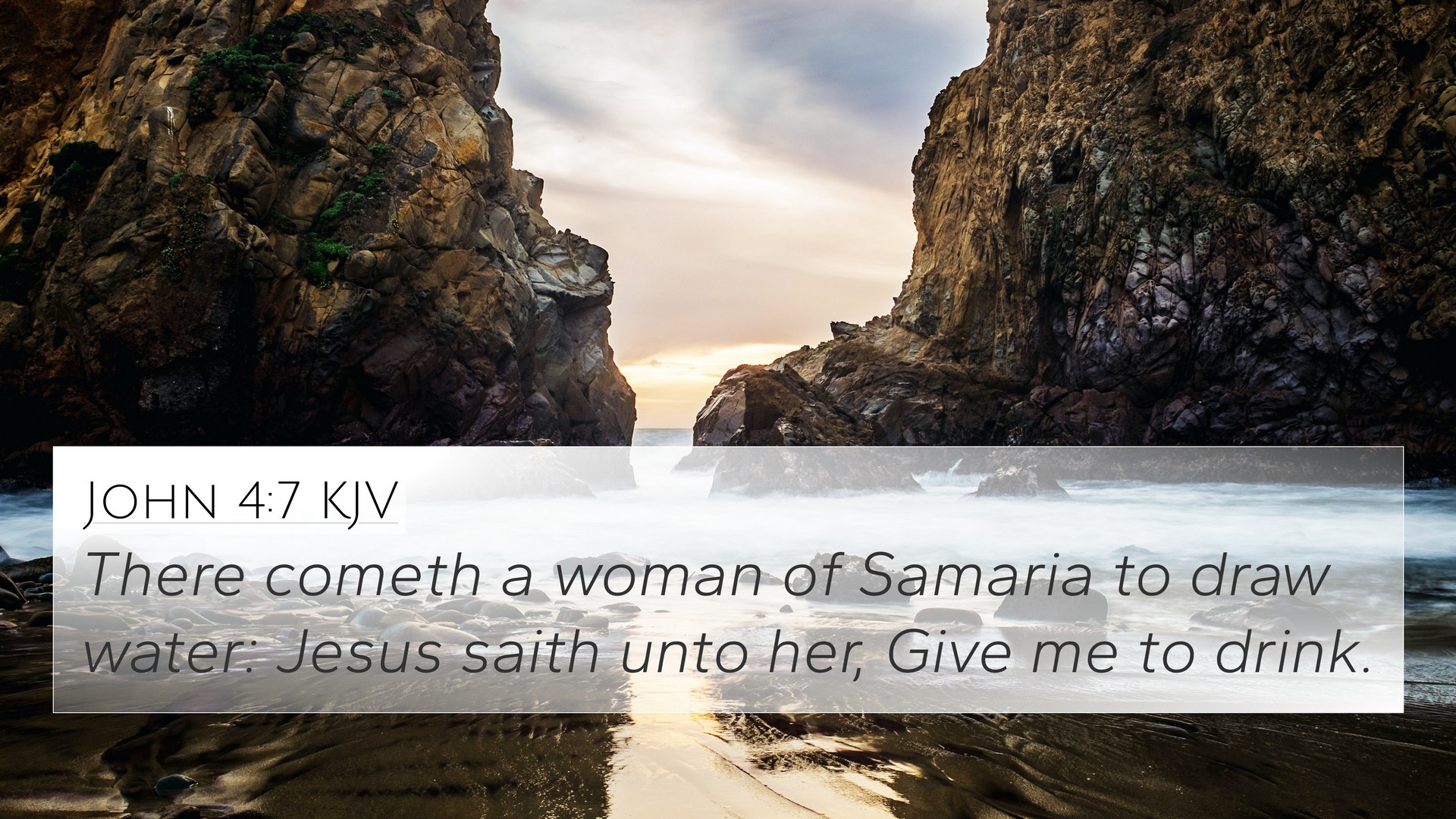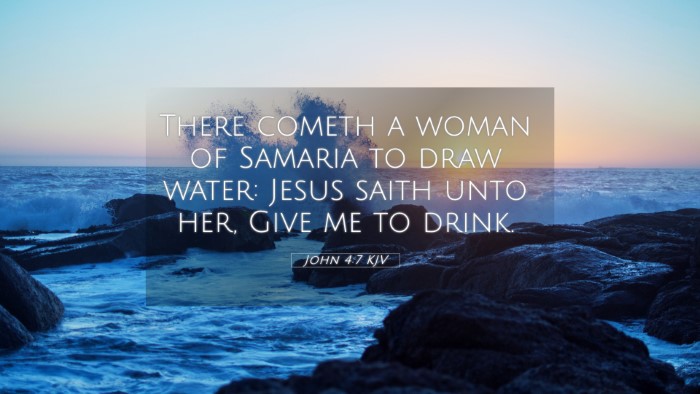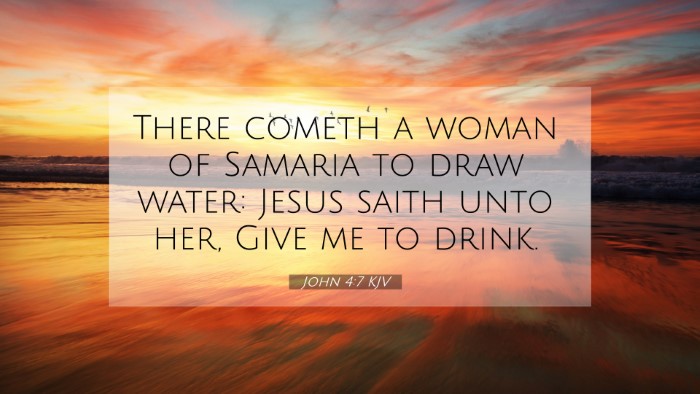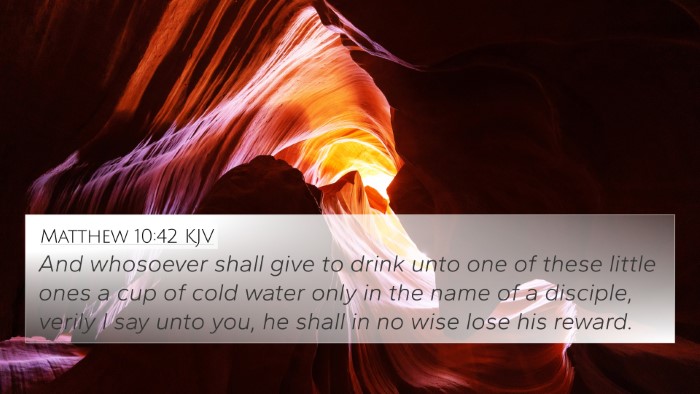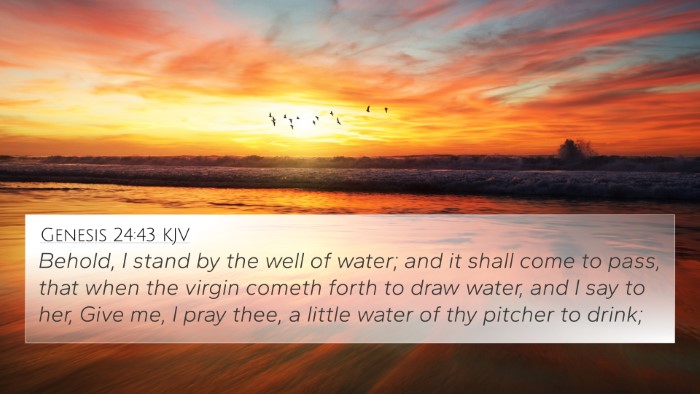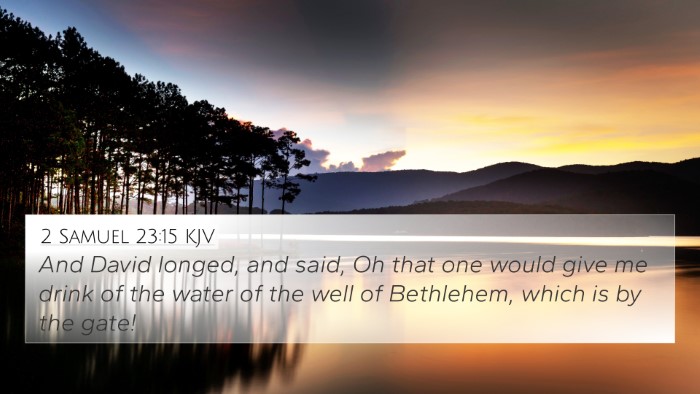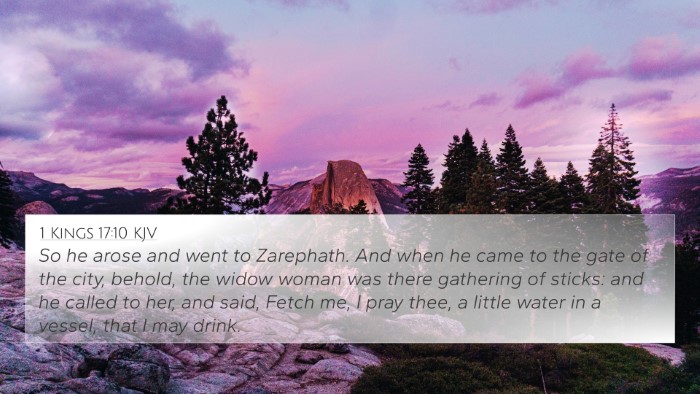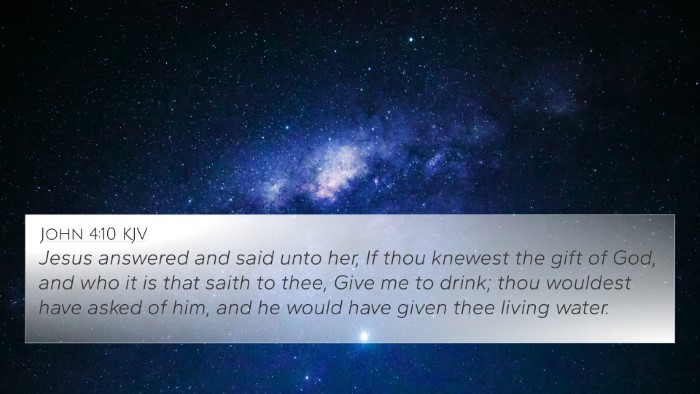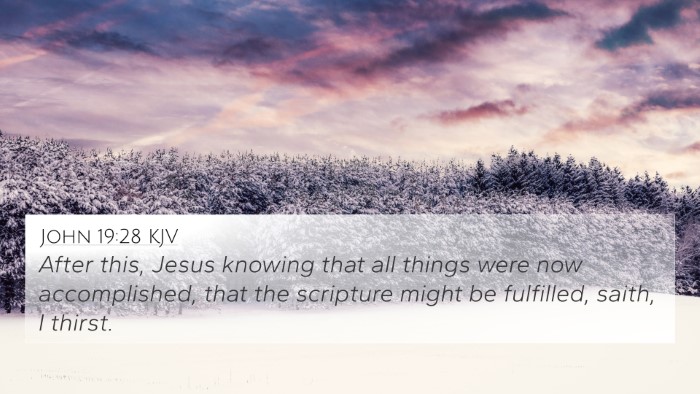Understanding John 4:7
In this pivotal moment within the Gospel of John, Jesus encounters a Samaritan woman at Jacob's well. The verse states: “There came a woman of Samaria to draw water: Jesus saith unto her, Give me to drink.” This simple request has profound implications that resonate throughout scripture.
Contextual Analysis
- Historical Background: The encounter takes place in Samaria, a region despised by Jews due to historical conflicts. Jesus, a Jew, breaking societal norms by speaking to a Samaritan woman highlights the inclusivity of His message.
- Theological Significance: This verse is the precursor to deeper revelations about 'living water,' representing eternal life, salvation, and the refreshing spirit of God.
- Social Implications: By addressing a woman publicly, Jesus elevates the status of women in spiritual matters, showing that the message of salvation is for all, regardless of gender or ethnicity.
Commentary Insights
- Matthew Henry: He emphasizes that this act of asking for water symbolizes the greater thirst for spiritual nourishment that humanity holds. Jesus’ request highlights His human nature while also directing the conversation toward spiritual truths.
- Albert Barnes: Barnes notes that Jesus' request was intentional, aiming to draw the woman into dialogue about her spiritual condition. He sees this dialogue as a method to reveal her need for redemption.
- Adam Clarke: Clarke indicates the significance of Jesus’ willingness to accept a drink from the Samaritan woman, illustrating the breaking of Jewish customs and the universal nature of Christ's ministry.
Bible Verse Cross-References
This verse connects with several others that illuminate its themes:
- Matthew 28:19-20 - The Great Commission emphasizes the reach of Christ's message to all nations, reflecting the inclusive nature exhibited in John 4:7.
- John 7:37-38 - Jesus again speaks of living water, creating thematic continuity with the promise of spiritual sustenance.
- Isaiah 55:1 - A call to the thirsty, reinforcing the invitation to seek spiritual fulfillment.
- Luke 10:33 - The example of the Good Samaritan illustrates the importance of love and mercy across cultural boundaries.
- Acts 10:34-35 - God shows no favoritism, echoing the principle of inclusivity emphasized in Jesus’ conversation with the Samaritan woman.
- Galatians 3:28 - Highlights the equality of all believers in Christ, paralleling the revelations offered to the Samaritan woman.
- John 3:16 - For God so loved the world… emphasizes that salvation is available to everyone, similar to how Jesus reaches out to the Samaritan woman.
Thematic Bible Verse Connections
- John 4:14 - The promise of eternal life represented as living water, directly connected to the initial request for water in John 4:7.
- Revelation 21:6 - The concept of the water of life echoes throughout scripture and culminates in the promise of eternal satisfaction in the presence of God.
Conclusion
The conversation initiated in John 4:7 serves as a bridge to explore deeper spiritual truths about thirst, acceptance, and redemption. By seeing this verse through the lens of other scriptural references, the rich tapestry of God's messaging becomes clear, showcasing His desire for connection and relationship with every person.
Using Bible Cross-References Effectively
For those studying this verse, utilizing a Bible cross-reference guide can enhance understanding. Tools such as a Bible concordance or comprehensive Bible cross-reference materials can identify themes and deepen insights into the connections between Bible verses.
In your personal study, consider asking:
- What verses are related to John 4:7?
- How do John 4:7 and similar verses reinforce the message of inclusivity?
- Which themes emerge when comparing various accounts of Jesus’ interactions with marginalized groups?
